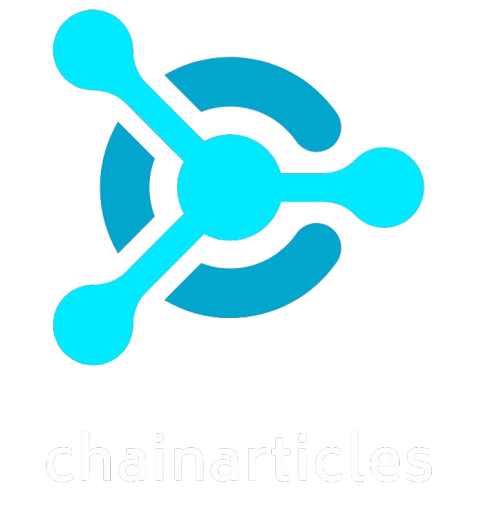Money market accounts (MMAs) and checking accounts may share some similar features, such as earning interest, getting FDIC insurance coverage, and allowing check writing and debit card access. However, they differ in terms of yields, withdrawal limits, and transaction flexibility.
MMAs typically offer higher returns than checking accounts, which usually provide little to no interest earnings. When it comes to account access, checking accounts have fewer restrictions on withdrawals and transfers, while MMAs are often limited to six withdrawals or transfers per month due to Federal Reserve Regulations.
What is a money market account?
A money market account is a savings product that offers some checking account features. Generally, MMAs provide higher interest than checking accounts, but will also require higher initial deposits and minimum balance requirements. While they allow you to write checks and use debit cards, they can have a strict limitation of six monthly withdrawals or transfers.
MMAs can be a great choice if your main goal is to earn more interest on your savings and you don’t need constant access to your money. However, you need to consider the higher deposit requirements and transaction restrictions before opening this type of account.
What is a checking account?
A checking account is designed for day-to-day transactions, making it ideal for those who need to manage regular transactions like paying bills, receiving payments, or making purchases. It also comes with paper checks and debit cards. Typically, it offers unlimited withdrawals and transfers, making it a convenient option if you wish to access your funds often.
However, many checking accounts offer low to no interest on your balance, which won’t allow you to grow your funds compared to an MMA. Still, its flexibility and ease of access make it an essential account for most people.
Key differences: money market vs checking account
Below is a table highlighting the differences between a money market vs checking account.
| Money Market Account | Checking Account | |
|---|---|---|
| Initial deposit amount | Higher | Lower or none |
| Minimum balance requirement | Higher | Lower or none |
| Monthly fee | Yes; waivable | Mostly yes; waivable |
| Earns Interest | Higher | Lower or mostly none |
| Monthly withdrawal limits | Usually six but varies per provider | Mostly none |
| Debit card | Yes, some | Yes |
| Check-writing | Yes, some | Yes |
| Federally insured | Yes | Yes |
| Transaction types | Can include direct deposits, wire transfers, mobile check deposits, check deposits, ACH transfers, and debit card transactions. | Can include direct deposits, wire transfers, mobile deposits, check deposits, ATM withdrawals, ACH transfers, bill pay, and debit card transactions. |
Interest rates of money market account vs checking account
Money market accounts are classified as interest-bearing accounts while checking accounts may or may not offer returns.
- Money market account: MMAs generally offer higher interest rates than checking accounts, with rates ranging from 0.5% to over 3%, depending on your provider and account balance. Some MMAs have tiered interest, meaning you earn higher returns the more money you have in your account.
- Checking account: Meanwhile, checking accounts typically offer very little to no interest, often ranging from 0% to 0.5% annual percentage yield (APY). However, a few online banks may offer slightly higher rates.
If your priority is earning maximum interest and you’re comfortable with limited access to your funds, I recommend opening a money market account. However, if you need an account for everyday transactions and aren’t concerned with interest, a checking account is your best option.
Before making a decision, I encourage you to compare the interest rates from various providers before choosing a business bank.
Access to funds of money market account vs checking account
When it comes to accessing your money, MMAs and checking accounts differ in flexibility.
- Money market account: MMAs typically allow up to six monthly withdrawals or transfers, though this can vary by provider. Exceeding the limit can result in a fee. While some MMAs offer check-writing and debit card access, your account may still be subject to transaction limits.
- Checking account: Compared to MMAs, most checking accounts offer unlimited withdrawals or transfers monthly. You can access your account through check writing and debit cards, which are useful for paying bills and making large in-store or online purchases.
If you need unrestricted access to your funds for daily transactions, I recommend opening a checking account.
Minimum balance and fees of a money market account vs checking account
The fees and balance requirements for MMAs and checking accounts can vary, but some general differences exist.
- Money market account: It typically requires a higher opening deposit and minimum balance (between $1,000 and $5,000) than a checking account. Some online banks may offer lower minimums. Monthly maintenance fees usually range from $5 to $30 though some providers waive this fee if you maintain the required balance.
- Checking account: Basic checking accounts can often be opened with no initial deposit and typically don’t have a minimum balance requirement. However, to avoid monthly service fees (usually $5 to $30), you may need to maintain a balance between $500 and $1,500. Additional fees might apply for overdrafts, ATM withdrawals outside the bank’s network, and paper statements.
Read our article on overdraft protection to learn how it works and avoid the common overdraft fee.
If you seek a low-maintenance, everyday account, a basic checking account may be the right choice. However, if you’re willing to maintain a higher balance for better interest and fewer fees, an MMA could work for you.
Transaction types of a money market account vs checking account
The types of transactions available on each account type can differ, depending on how you plan to use your account.
- Money market account: You can make direct deposits, wire transfers, and mobile check deposits with an MMA. Some accounts allow check-writing, though not all providers offer this feature. You can also make ACH transfers and, in some cases, use a debit card for purchases or ATM withdrawals. However, note that MMAs often have transaction limits, and exceeding them may incur fees.
- Checking account: This account is designed for frequent transactions. You can perform direct deposits, wire transfers, mobile deposits, check deposits, and ATM withdrawals without restrictions. With unlimited withdrawals and transfers, checking accounts are built for daily use, and they also allow ACH transfers, debit card transactions, and automated bill pay.
If you need to transact frequently, pay bills, or make large purchases, a checking account suits your needs better. MMAs are ideal if you prefer to earn more interest and don’t mind the limitations on withdrawals.
Before deciding to open a business bank account, I suggest evaluating your financial needs to ensure you open the right banking product.
Liquidity and security of a money market account vs checking account
Both money market accounts and checking accounts provide easy access to your funds and strong security protections.
- Money market account: While MMAs offer better liquidity than traditional savings accounts, they are less liquid than checking accounts due to withdrawal limits. However, you can access your money through ATMs, checks, and wire transfers. MMAs are covered by FDIC (banks) or NCUA (credit unions) insurance, which protects deposits up to $250,000 per depositor and institution.
- Checking account: Checking accounts are designed for everyday spending and provide high liquidity with typically no withdrawal limits. You can use your debit card, write checks, and transfer funds freely. As with MMAs, checking accounts are protected by FDIC or NCUA insurance up to the standard limit of $250,000 per depositor and institution.
If you need regular access to your funds, then my recommendation is to open a checking account. While MMAs still offer easy access to your funds, they are better suited for those who don’t need to access their funds as often.
For more information, see our guide on how FDIC insurance for business accounts works.
Pros and cons of a money market vs checking account
Here’s a quick overview of the pros and cons of money market vs checking accounts to help you make your decision.
Money market accounts
Pros
- Higher interest rates than checking accounts.
- FDIC or NCUA insurance up to $250,000.
- Easy access to funds.
- Check-writing privileges and debit card use are offered by some.
Cons
- Restrictions on monthly withdrawals and transfers.
- High minimum balance requirements.
- Limited account access compared to checking.
- Monthly service fees may apply when balance requirements are unmet.
MMAs offer better interest rates than checking accounts, but they come with higher balance minimums to waive monthly service fees or earn the best yields. They are low-risk and offer FDIC or NCUA insurance coverage. Your funds are also liquid. However, compared to checking accounts, MMAs have transaction restrictions. In addition, if you fail to maintain the required balance, it can result in monthly service fees.
Checking accounts
Pros
- Unlimited withdrawals and transfers (mostly).
- No minimum balance requirements for basic accounts.
- Easy access to funds through debit card and check writing.
- Potential cash back rewards from debit card use.
Cons
- Low or no interest earnings.
- Multiple fees.
- Overdraft risk.
- High fraud exposure.
Most checking accounts offer unlimited withdrawals and transfers, and many waive monthly service fees for basic accounts. Your funds are highly liquid, allowing daily transactions without fees. You also often get a debit card, which may offer cash back rewards. However, the main downside is low or no interest earnings on your balance. You may also encounter various fees, such as overdraft charges and non-network ATM withdrawal fees. In addition, using checks and debit cards can increase your exposure to fraud risks.
When to choose a money market account vs checking account
A money market account is best if you:
- Have a large balance.
- Want higher interest.
- Have few monthly transactions (less than six).
- Can maintain the minimum balance requirement for fee waivers.
Check out our list of the best business savings accounts to select the best fit for your needs.
A checking account is best if you:
- Want easy access to funds for daily transactions.
- Don’t want a high initial deposit.
- Need easy account access through checks, debit cards, and online bill pay.
- Want to avoid maintaining a high minimum balance.
See our roundup of the best small business checking accounts and the best free business checking accounts for your financial needs.
Frequently asked questions
Can you withdraw money from a money market account?
Yes, you can but keep in mind that many banks impose a limit on withdrawals, usually six per month. If you exceed this limit, you could incur a fee.
What are the advantages of a money market account?
The main advantages of an MMA include higher interest rates than regular savings and checking accounts, easy access to your funds, and FDIC protection of up to $250,000 per depositor and institution. Some MMAs also offer check-writing and debit card access.
What is the downside of a money market account?
One of the downsides of a money market account is the high minimum balance requirement. To avoid monthly service fees and earn the best interest rates, you often need to maintain a significant balance. If your balance drops below the required amount, you may incur fees and earn lower yields.
Can you lose your money in a money market account?
Money market accounts are considered low-risk products, and your money is generally safe, with FDIC insurance protecting your deposits up to $250,000 per depositor and institution. However, you’re still subject to fluctuating interest rates, which makes your returns variable.
How do you determine if a money market account is right for me?
A money market account suits you if you have a substantial balance, seek higher yields than a standard savings account, and need quick access to your funds. It’s a good option if you have short-to-medium-term savings goals and won’t need frequent withdrawals from your account.
What is the best way to use a money market account?
Money market accounts are best used for building an emergency fund, saving for a down payment, or holding business capital. They offer a good balance of earning interest while keeping your funds accessible.


